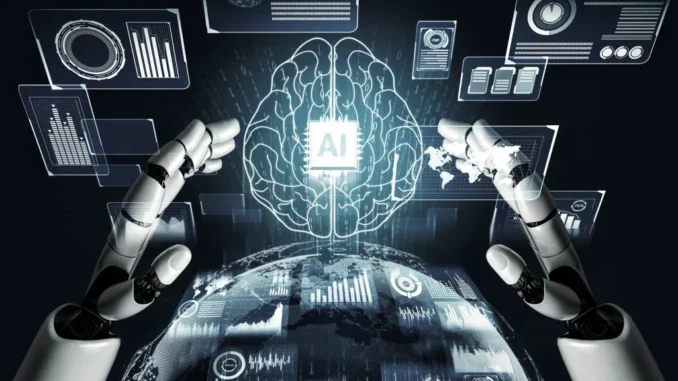
Artificial Intelligence (AI) has become a transformative force in modern information technology (IT), reshaping various facets of the industry and driving advancements across multiple domains. Here’s an overview of the key roles AI plays in contemporary IT:
1. Data Analysis and Insights – AI algorithms and machine learning models enable organizations to analyze vast amounts of data efficiently. By recognizing patterns and trends within datasets, AI helps businesses make data-driven decisions, optimize operations, and gain insights into customer behaviors.









2. Automation of Processes
AI facilitates the automation of repetitive and time-consuming tasks, allowing IT departments to focus on more strategic initiatives. This can include automating software testing, deployment processes, and routine maintenance, leading to increased productivity and reduced human error.
3. Enhanced Cybersecurity
AI enhances cybersecurity by monitoring network traffic and user behaviors to identify potential threats in real time. Machine learning models can detect anomalies and predict potential security breaches, enabling organizations to respond proactively to cyber threats.
4. Natural Language Processing (NLP)
NLP, a subset of AI, enables machines to understand, interpret, and respond to human language. This technology powers chatbots and virtual assistants, improving customer service by providing instant and accurate responses to inquiries.
5. Personalization and User Experience
AI drives personalization in IT applications — from content recommendation systems to personalized marketing campaigns. By analyzing user preferences and behaviors, AI can tailor experiences, thereby enhancing user engagement and satisfaction.
6. Cloud Computing
AI plays a significant role in optimizing cloud services. It enhances resource allocation, reduces costs, and improves the overall efficiency of cloud environments by predicting demand and automating scaling operations.
7. Business Intelligence and Predictive Analytics
AI enhances business intelligence tools by providing predictive analytics capabilities. Organizations can forecast trends, make informed decisions, and strategize more effectively, which reinforces competitive advantages in the market.
8. Software Development
AI assists in software development by enabling features like automated code generation, debugging, and testing. Tools like GitHub Copilot use AI to aid developers in writing code more efficiently and accurately.
9. IT Support and Service Management
AI-driven systems can analyze support tickets and provide predictive insights, streamline workflows, and even respond to user queries through intelligent agents. This improves IT service management and enhances user satisfaction.
10. Integration with IoT
AI is essential for the Internet of Things (IoT), where it analyzes data generated by connected devices. This integration enables smarter analytics, facilitates automation, and drives decision-making processes based on real-time data.
Conclusion
The integration of AI in information technology is not just about enhancing efficiency; it is about redefining the capabilities and possibilities of what organizations can achieve. As AI continues to evolve, its potential to innovate and streamline IT processes will only expand, paving the way for a more intelligent, automated, and data-driven future in the technology sector.


Leave a Reply